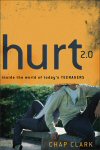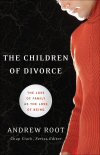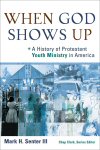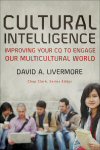Baker Youth, Family, and Culture Series (4 vols.)
Digital Logos Edition
Overview
How can leaders develop cross-cultural relationships? What is contemporary adolescent life like? How does divorce impact youth? The Youth, Family, and Culture Series examines the essential issues involved in studying and caring for the young. Dedicated to the preparation and vocational strengthening of those committed to adolescents’ spiritual development, the series provides a philosophical, sociological, and theological perspective on what it means to evangelize today.
Whether you’re a pastor, youth leader, or layperson, this collection will enhance your understanding of evangelism. All Scripture passages in the Youth, Family, and Culture Series link to your favorite Bible translation in your library. You can perform powerful searches by topic and find what other authors, pastors, and theologians have to say, making this collection ideal for studying youth evangelism.

Key Features
- Enhances your understanding of contemporary evangelism
- Provides insight on the thought and lives of today’s teenagers
- Contains practical tools for cross-cultural evangelism
Product Details
- Title: Baker Youth, Family, and Culture Series
- Editor: Chap Clark
- Publisher: Baker Academic
- Volumes: 4
- Pages: 1,152
Individual Titles
- Hurt 2.0: Inside the World of Today’s Teenagers by Chap Clark
- The Children of Divorce: The Loss of Family as the Loss of Being by Andrew Root
- When God Shows Up: A History of Protestant Youth Ministry in America by Mark H. Senter III
- Cultural Intelligence: Improving Your CQ to Engage Our Multicultural World by David A. Livermore
This title is included in the following collections
You can save when you purchase this product as part of a collection.
Baker Ultimate Collection 2022...
$38,273.89$30,599.99

What do teenagers really think about adults? If you think you know the answer, you may be in for a surprise. According to Chap Clark, today’s adolescents have largely been abandoned by adults and left to fend for themselves in an uncertain world. As a result, teens have created their own world to serve as a shield against uncaring adults.
Based on six months of participant-observer research at a California public school, this book offers a somewhat troubling but insightful snapshot of adolescent life. It will surprise and enlighten parents, youth workers, counselors, pastors, and all who want to better understand the hearts and minds of America’s adolescents.
Hurt provided a vivid and insightful view into the world of today’s teenagers. Now, leading youth ministry expert Chap Clark substantially updates and revises his groundbreaking bestseller. Hurt 2.0 features a new chapter on youth at society’s margins and new material on social networking and gaming. Each chapter has been thoroughly revised with new research, statistics, quotations, and documentation.
Clark gives evidence in this book as to why he is one of the brightest figures in the field of youth ministry. Hurt provides more insight into what young people feel and how to deal with their feelings than almost any other book that will come your way.
—Tony Campolo, emeritus professor of sociology, Eastern University
What makes Hurt so valuable is that it marries the very best of careful scholarship with a deep compassion for kids. Clark is not just an academic who offers thoughtful ethnographic research. He’s a frontline youth worker who still spends time with these students even after all the data has been collected. This important book will be very helpful to youth workers, parents, counselors, and educators alike.
—Duffy Robbins, associate professor of youth ministry, Eastern University
Based on solid research and years of insightful observation, Clark’s Hurt serves to open the eyes of parents, youth workers, pastors, educators, and youth-serving professionals to realities from which the church has too often chosen to look away. Hurt’s ‘world beneath’ is a world we must visit if we hope to be significant people through which the Gospel speaks. If we hope to point the hopeless to true hope, these realities must be faced, understood, and addressed. Hurt offers a deep and penetrating look into the contemporary adolescent experience that will serve us well as we work to have a prophetic, preventive, and redemptive influence on the world of today’s youth culture.
—Walt Mueller, president, Center for Parent/Youth Understanding
Clark has been stepping inside the world of teenagers for many years. This book is a unique invitation for us to join him in their world. When we finish this journey, we will care more about kids and understand who they are and the challenges they face.
—Denny Rydberg, president, Young Life
The expanded and updated version of Chap Clark’s Hurt, this book is a must-read for parents and youth ministry workers who want to serve students with the utmost effectiveness. Clark does an excellent job blending the research on the actions and behaviors of teenagers, what impacts their lives, what many of them are thinking, and whom they are most likely to listen to. Any concerned parent, senior pastor or youth ministry leader who wants to understand ‘the world beneath,’ which our teenagers live in, should have a copy of this book and review it with your spouse or ministry teams.
—Outreach
Chap Clark is the vice provost for regional campuses and master’s programs and professor of youth, family, and culture at Fuller Theological Seminary, where he also serves as director of the Student Leadership Project and the Institute of Youth Ministry. He is currently based in Seattle, Washington, giving special focus to Fuller Northwest. A well-known youth ministry practitioner, Clark is the senior editor of YouthWorker Journal and the author of several books on adolescence, parenting, and youth ministry.

Divorce leaves a deep mark on children of all ages. But why does it cause so much strain and long-term distress? Andrew Root, a recognized authority on youth ministry and a child of divorce himself, explains that divorce is first and foremost an issue of ontology. When parents divorce, what it precipitates in children is nothing less than a questioning of root self or core identity. Since a child is the product of the union of a mother and father, when that union ends, he or she experiences a loss of his or her very sense of being. Exploring the issue from a theological and spiritual standpoint, Root redirects efforts for assisting children of divorce to address this fundamental experience and provides hope that communities of faith can offer a firm foundation to those affected by divorce. This is the first volume to examine the impact of divorce from a practical theological perspective and also from a young person’s perspective. Those who have experienced divorce and those who work with or minister to young people whose parents are divorced will benefit from The Children of Divorce.
Andrew Root’s insightful analysis gives voice to my own journey as a child of divorce, and to the experiences of countless others I’ve observed. This book beautifully integrates the ontological pain of divorce with the redemptive power of Christ and the church.
—Kara E. Powell, executive director, Fuller Youth Institute, Fuller Theological Seminary
What happens to a child when the source of his or her existence disintegrates? This fascinating study argues that the pain experienced by children of divorced parents cannot be healed by legal, psychological, ‘religious,’ or other techniques. An affliction that attacks the ontological foundations of the self can only be assuaged by the acquisition of new sources of being. And so Andrew Root probes how the Christian faith and community can help locate these sources. As in his previous books, Root here demonstrates an unusual combination of human compassion and theological wisdom.
—Douglas John Hall, emeritus professor of Christian theology, McGill University
Our culture says divorce is ‘normal,’ but the existential consequences for children of divorce—like myself—are not a normal aspect of human development. With compassion, wisdom, and theological insight, Root calls for the church to become a community in which young people are able to ground their being and process the painful loss of family security.
—Mark W. Cannister, associate professor, Gordon College
Divorce leaves a cloud of dust that never settles. And those of us who love and care for kids need to pay special attention to the growing number of children who undergo this experience. As one who has lived in the dust, Andrew Root raises the right issues, challenging us to think more deliberately and carefully about what it means to minister to, parent, and befriend the children of divorce.
—Walt Mueller, president, Center for Parent/Youth Understanding
The Children of Divorce is winsomely written, achingly honest, and fearlessly hopeful. Root’s analysis of divorce as an ontological—not just a sociological—crisis for children is dead-on, as is his advice for congregations who must name and address this soul-splitting reality. With his incomparable ability to blend story and theology, and his signature insistence on naming elephants in the room, Root delivers a beautiful and wise book that is for anyone touched by divorce . . . which means, of course, that it is for all of us.
—Kenda Creasy Dean, associate professor of youth, church, and culture, Princeton Theological Seminary
A well-informed book about the deep effects of divorce on children’s sense of being. . . . While Root’s argument is theoretically grounded in several academic disciplines, it will primarily be used by, and useful to, those ministering to children of divorce. . . . Recommended.
—Choice
Andrew Root is the Olson Baalson Associate Professor of Youth and Family Ministry at Luther Seminary in St. Paul, Minnesota. He is well connected in the professional youth ministry world. He is the author of Revisiting Relational Youth Ministry and has published many articles and chapters.

In a post-everything era, is there any hope that teenagers will encounter the Triune God? If history is any indication, the answer is yes. According to veteran youth educator Mark Senter, for more than two centuries Protestant youth ministries have either strengthened teenagers after a special encounter with God or tried to retain them until such a moment when God shows up. This book examines the fascinating journey of church leaders as they seek to capture the moment in life when young people are most open to peak spiritual experiences. As such, it provides the first substantial history of American Protestant youth ministry.
Senter traces the American Protestant church through three cycles of youth ministry, each beginning with a cultural shift that made obsolete the established methods of passing Christian values from one generation to the next. For each cycle, he evaluates innovations made by pastors and local churches in response to cultural shifts and shows how these innovations in youth ministry have impacted broader church life. Senter also highlights the evolution of adolescent spirituality in America and describes the major shapers of youth ministry over the last century. As he reveals the dynamics of changing youth ministry trends and eras, Senter uses history as a lens for responding to the future.
This volume’s unique historical foundation makes it relevant for a broad array of youth ministry courses. In addition, youth workers will value Senter’s assessment of what youth ministry has been, what it is now, and where it is going.
Mark Senter has done it again! Those of us who have read and used The Coming Revolution in Youth Ministry have waited far too long for this rich addition to the field of youth ministry. When God Shows Up offers a remarkable sweep across the heritage of youth ministry, demonstrating the factors that have shaped us today. Students of youth ministry will benefit from this work for years to come. I urge all those who care about where youth ministry has been and where it is going to read this fine book.
—Wesley Black, professor of student ministry, Southwestern Baptist Theological Seminary
When God Shows Up will be a standard text in the field and will help us all stand on the shoulders of those who have gone before us with a passion to reach and nurture young people.
—Leonard Kageler, associate dean for faculty development, Nyack College
Every family, every organization, and every movement has a history that informs, explains, and inspires. Mark Senter has done a wonderful job of providing historical context for American Protestant youth ministry, which is a family, an organization, and a movement all in one. A thorough understanding of the contents of this book will help those who care about youth ministry to appreciate its roots and to be awed and inspired by youth ministry leaders from the past.
—Dan Lambert, dean of professional studies, John Brown University
Like a wise docent, Senter generously guides us through the archives of the history of youth ministry. Embracing a cyclical description of the evolution of youth ministry in America, Senter insightfully presents a well-researched, creative engagement with youth ministry in the Protestant church. Faithfully reporting the stories of our past, the text concludes with current observations and questions regarding our future direction. Comprehensive, accessible, and vital—a one-of-a-kind book that needs to be savored by every youth ministry professional!
—Cheryl A. Crawford, assistant professor of youth ministry, Azusa Pacific University
Weaving together stories of youth ministry pioneers and their organizations, Senter provides an intriguing historical perspective on the church’s concern for its young people. Drawing on the lessons from history, Senter provides insight into this frustrating area of ministry and the challenges the church must address in order to spiritually engage young people. When God Shows Up is required reading for anyone remotely concerned with the future of the church’s ministry to young people.
—Darwin Glassford, director of the MA program, Calvin Theological Seminary
Youth ministry changes—and must change—in the context of changing cultures. Mark Senter has experienced much of the history of modern youth ministry as a youth pastor himself and as a professor and leading scholar in the field. In When God Shows Up, Senter has produced a book that professors, students, youth leaders, and senior pastors should study. It challenged and expanded my thinking. Senter’s latest book is grist for dynamic, ministry-transforming discussion.
—Dean Borgman, Charles E. Culpeper Professor of Youth Ministries, Gordon-Conwell Theological Seminary
Mark H. Senter III is a professor of educational ministries and chair of the department at Trinity Evangelical Divinity School in Deerfield, Illinois. He is chair of the board of the Association of Youth Ministry Educators and has served as a youth pastor for 11 years. Senter has written and spoken widely on Christian education topics, with a specialty in youth ministry, and is the author or coauthor of eight books, including The Coming Revolution in Youth Ministry.

As twenty-first-century society grows increasingly complex, pluralistic, and multicultural, it behooves Christians to communicate effectively between and among diverse populations. Research indicates that missions often fail because of cultural collision and lack of empathy and understanding between different peoples. David Livermore proposes a meta model—based on sound research principles and social science methodology—for helping Christians intelligently navigate the multicultural maze in Cultural Intelligence. The much-needed skill of Cultural Intelligence (CQ) both at home and abroad is the ability to work effectively across national, ethnic, and even organizational cultures. Livermore explains that CQ is not simply learning how to externally modify behavior but is based on inward transformation. His work is replete with assessment tools, simulations, case studies, and reflective exercises. Professors and students of missiology, practical theology, ministry leadership, intercultural studies, and sociology in Christian colleges, seminaries, and lay training programs will glean needed knowledge to become culturally sensitive, aware, and intelligent.
The more I’m around Dave Livermore, the more I learn how to develop kingdom relationships that cross cultures. Whether you are leading a short-term mission trip, doing local justice work, or simply want to more effectively love others, you are smart to read Cultural Intelligence. You are even smarter if you apply its profound insights to your life and ministry.
—Kara E. Powell, executive director, Fuller Youth Institute, Fuller Theological Seminary
In an era of drive-by, short-term missions, David Livermore brings reconstruction. He does not merely suggest cultural sensitivity; he helps us deconstruct and build something new—a pathway to cultural intelligence that can guide us to be citizens of the kingdom of God while being proactively engaged as neighbors in the world.
—Mark Oestreicher, president, Youth Specialties
Comprehensive and accessible, this book clearly details the cultural intelligence model for multicultural ministry. In this book, David Livermore addresses both conceptual and practical issues on cultural intelligence. He has expanded the ideas of multiculturalism to include not only national cultures but also organizational and generational subcultures. This book is an ideal text and a valuable resource for building the core skills of cultural intelligence in individuals and organizations.
—Soon Ang, executive director, Center for Leadership and Cultural Intelligence, Nanyang Business School, Singapore
In an increasingly diverse and cynical society, the pursuit of cross-cultural competence is something that the church can no longer afford to ignore at home or simply relegate to missionaries living abroad. Livermore’s book helps us understand our own culture and the grids through which we see the culture of diverse others with whom we walk, work, and worship in a dynamic global society. With such understanding, then, we will be better equipped to engage our multicultural world for the sake of friendship and faith, all for the sake of the Gospel.
—Outreach
David A. Livermore is the executive director of the Global Learning Center at Grand Rapids Theological Seminary. In addition, he is a research fellow at Nanyang Technological University in Singapore and a senior consultant with the Cultural Intelligence Center. Livermore has traveled to more than 75 countries and is the author of the award-winning Serving with Eyes Wide Open as well as numerous articles and training manuals.
About Chap Clark
Chap Clark is the vice provost for regional campuses and master’s programs and professor of youth, family, and culture at Fuller Theological Seminary, where he also serves as director of the Student Leadership Project and the Institute of Youth Ministry. He is currently based in Seattle, Washington, giving special focus to Fuller Northwest. A well-known youth ministry practitioner, Clark is the senior editor of YouthWorker Journal and the author of several books on adolescence, parenting, and youth ministry.